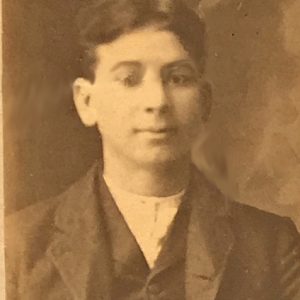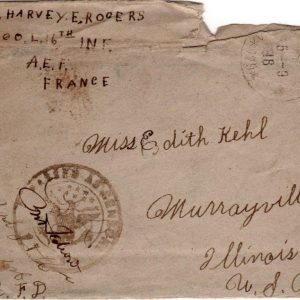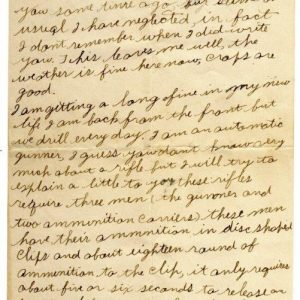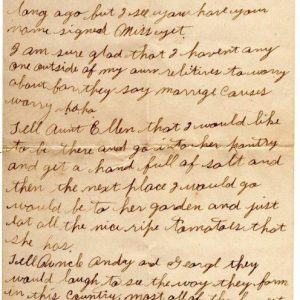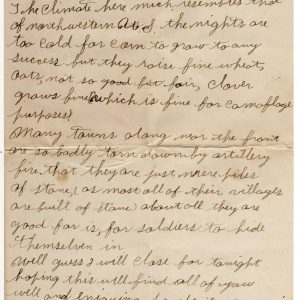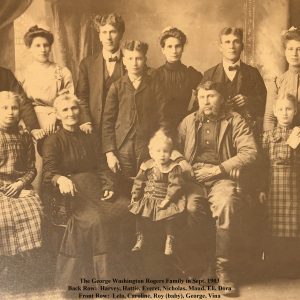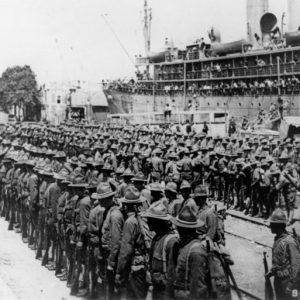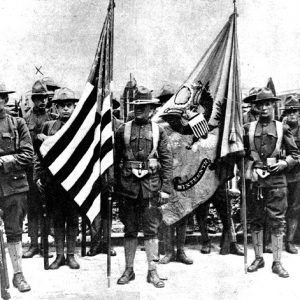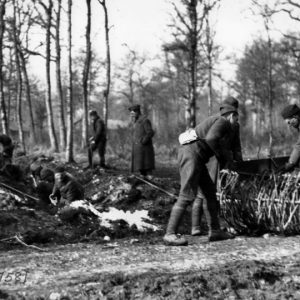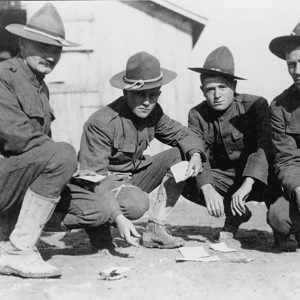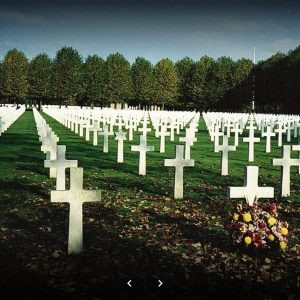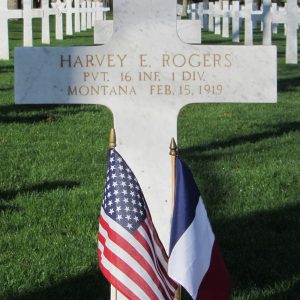 Armistice Day was established to honor the day peace finally arrived – Nov. 11, 1918, ending World War I. On the eleventh hour of the eleventh day of the eleventh month, the guns fell silent. It brought an end to four years of war which crippled Europe and left 17 million dead. This is the story of how WWI touched our little family.
Armistice Day was established to honor the day peace finally arrived – Nov. 11, 1918, ending World War I. On the eleventh hour of the eleventh day of the eleventh month, the guns fell silent. It brought an end to four years of war which crippled Europe and left 17 million dead. This is the story of how WWI touched our little family.
My grandmother, Edith Kehl Edwards, told me about her cousin Harvey as we looked at the photo of his family. She was very old at that time – many years had passed – as we sat on her sofa with the box of old photos, probably 45 years ago. I remember the look in her eyes as she put herself back in that long ago time and those long ago emotions.
Harvey Earl Rogers was born in 1889 to a Morgan County, Illinois farm family, and 1 of 10 children of George Washington and Nancy Caroline (Fanning) Rogers. Grandma’s mother and Harvey’s father were sister and brother, and Edith and Harvey grew up together. He was eight years older and she adored him.
You can see from the Rogers’ family photo (shown below) that they were of quite modest means. The father is wearing rough work clothes, and he does not sport a watch and chain. The mother wears no jewelry to adorn her simple dress. There were many mouths to feed. Grandma said they always struggled to get by because George was adverse to hard work. He preferred to take the occasional auctioneer job and play his fiddle at dances, rather than farm.
Harvey went to Montana to farm as a young man and that’s where he was drafted into the army, serving in Company L of the 16th Infantry Regiment, 1st Infantry Division. They landed in France in June of 1917 and became the first U.S. regiment to fight and suffer casualties in the trenches during WWI.
In September, while going through my late mother’s keepsakes, to my great surprise and amazement I found a letter from Harvey to his “little cousin” Edith dated Aug. 30, 1918. This letter had been carefully saved and passed down and I was reading it for the first time almost 100 years to the day after it was written! Edith was 21 when she received it, and soon to be a bride. In his letter Harvey explained his job as an automatic gunner. As a farmer writing to a farm girl, he told her the different way the French farmed and the crops they raised. He joked with her and teased her about still being single. He was in good spirits, assuring her that he was in less danger now, no longer at the Front. However, he was shortly to return to the Front, per the 16th Infantry Regiment Association – “Arguably the regiment’s most gallant action was the grueling drive that liberated the little village of Fléville in the Argonne Forest region on 4 October 1918.”
Armistice arrived just a few weeks after Harvey wrote his letter home. His family celebrated with great relief that their prayers had been answered – he survived the war. His regiment would be home in a few months, after helping the French recover from the devastation. Then, the letter from the hospital chaplain was received by his parents, relating the terrible news that Harvey contracted an illness – probably Spanish Flu – and died in the army hospital on Feb. 15, 1919. He did not come home. He lies at rest on the French countryside with his countless comrades in the beautiful Oise-Aisne American Cemetery and Memorial.
Thanks to Grandma’s love of her cousin and her sharp memory, we know his story. And now, thanks to the letter she saved, we catch a glimpse of Harvey’s personality and the affection he felt for his family back home. Rest in Peace, Harvey Rogers. Rest in Peace.
For more, check out this link to hear the moment the guns ceased:
https://metro.co.uk/2018/11/07/eerie-recording-reveals-moment-the-guns-fell-silent-at-the-end-of-ww1-8114109/?fbclid=IwAR23nDDlzwCa76D4c-3q95HKK-HsxJN_JzA-1CFZ3cEsa_MUQCur1e55AuU
Below: Photos of Harvey, his family, and his letters are from the collection of Juli Claussen. The military photos are from the 16th Infantry Regiment Association webpage: https://16thinfassn.org/
- YOUNG HARVEY
- Harvey’s Letter (1)
- Harvey’s Letter (2)
- Harvey’s Letter (3)
- Harvey’s Letter (4)
- THE ROGERS FAMILY 1903
- HARVEY’S GRAVE MARKER
- THE 16TH ARRIVED AT ST NAZAIRE, FRANCE 26 JUN 1917
- THE REGIMENTAL COLOR GUARD PREPARES TO MARCH THROUGH PARIS 4 JUL 1917.
- SOLDIERS OF L-COMPANY PREPARING DEFENSIVE POSITIONS NEAR HERMITAGE, FRANCE
- THE MEN FOUND A WAY TO ENTERTAIN THEMSELVES TEN MINUTES AFTER BEING PAID
- OISE-AISNE AMERICAN CEMETERY AND MEMORIAL
